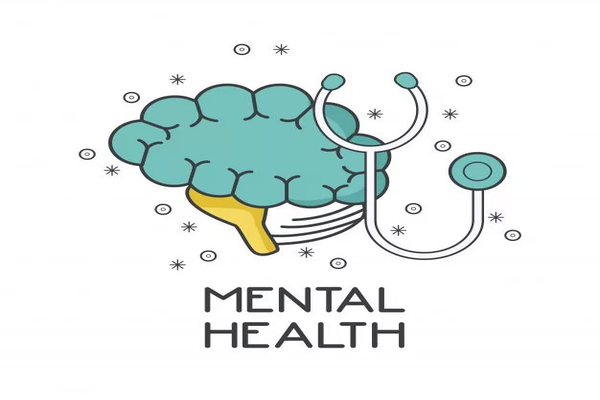We are living in dangerous times physically – famine, poverty, climate change, shootings and permissive sexual violence in the catholic church. And many of us, in small and big ways, have decided to do our part in averting these external dangers. But there’s just one more thing that we must pay attention to and do it well – mental disorders. The conversation on mental health is one which, despite our generation’s efforts to mainstream, we haven’t quite understood the magnitude of.
2 years ago, a young lesbian womxn took to her twitter account to express her distress from being outed to her not-so-conscious parents. As is the toxic culture of the equally beneficial social media platform where savagery is exalted and basic humanity lambasted, the respondents further tore her apart. But there was one dismissive comment that particularly threw me off. Not because it was the most savage, but because of who it was coming from. Another young womxn, who had taken on the noble work of creating awareness to mental health, thought that the former’s pain was, “not that serious.”
Now, I am sufficiently aware that ours is still an obtusely homophobic society; and that many of us just do not understand how queer people can be different from who we, the status quo are. Even then, one need not be of a minority sexual orientation to feel empathy in the situation. We must all be empathetic as a basic rule, even for a scenario involving people who we do not understand. But more importantly, anyone who is remotely aware of the repercussions of mental disorders should be able to realize that that situation was as serious as it gets.
Yet, if you think about it, it is not entirely shocking that even a would be authority would think that was not serious. Half the time anybody exhibits a hyper awareness to a situation, we are so quick to throw a blanket over that fire, “you’re so sensitive!” Over the years as Ugandan feminists cleaned the TL of misogyny by countering sexist tweets and shutting down sexists, there were comments that the timeline has become “so sensitive” that one can’t make a joke “in peace.” As though it is more burdensome to be a decent human being than it is to just be a complete dickhead. Isn’t it though, you ask. You might be right too.
How many times after a trust you so openly gave, was broken, have you thought that it would have been better if you had not given it at all? Or, the saying that when you’re nice, people take that for granted, which by the way carries all the truth. But why is that? Why must good people ration their goodness in fear of fellow human beings destroying them? Why must womxn, “just don’t take nude pictures” because another person is likely to breach the code of intimacy?
So you’re thinking; oh, Edna. That’s just how the world is, get over yourself! And maybe it is, and I should. Except that would be to give humanity so little credit. I have been a long time believer in William Golding’s theory of evil being innate, but I also believe that we have the capacity to love even more than we hate. I want to challenge us to ration evil instead of goodness. I know from experience, as I am sure you do, that with a little more effort we can become better people. That is what we should aspire to.
We have consistently found ways to add negative connotations to sensitivity – a keen awareness to ours and others’ feelings, which if we strived for, the world would be a better place for it. Consequently, many adults walk around with unresolved childhood traumas whose potential resolution was frustrated by their families and internet strangers alike. Now might be the time to change that. This can be a challenge we rise to. Not just for the mental health awareness month and donor funding – but for ourselves too, and deliberately.
But as we prepare to make life less difficult for one another, we are going to address our own issues. We are going to talk about our pain and seek psychotherapy help when we can. We are going to pay attention to how other people might feel. We are going to seek empathy like our next month’s rent depends on it. We are going to acknowledge and dig up our own traumas which have turned us into cold, savage, insensitive shells of our former selves who think that emotion is weakness. We are going to pick those traumas apart and let them go.
